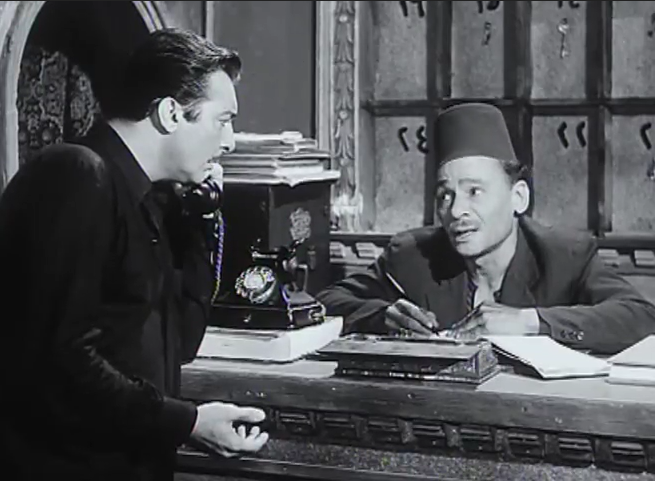SAFAR writer-in-residence Dr Khalid Ali highly recommends “El Tareeq” (The Search), SAFAR 2018 opening night film
SAFAR FILM FESTIVAL 2018 has announced that “El Tareeq” directed by Houssam Eldin Mustafa will be its opening night film. Based on the Naguib Mahfouz book of the same name, the film explores one of Mahfouz’s favourite themes: ‘Existentialism’. Boasting a stellar cast of the best of Egyptian cinema, including Rushdy Abaza, Shadia, Soad Hosny and Taheya Carioc, the film was a critical and commercial success upon its release in Egypt in 1964.
With its clever mix of sexuality and violence set against spirituality and faith, the film combines several genres; a film-noir, a psychological thriller, as well as a character study.
Saber El-Rehemi (Rushdy Abaza) is a carefree playboy, drifting through the night life of Alexandria, chasing random women for one-night stand affairs. With no formal education, and no substantial job, he is totally dependent on the riches of his mother, Baseema Omran (Carioca), a notorious madam who runs a chain of brothels. Life turns its ugly side for mother and son when she is imprisoned for sex trafficking. All her money and properties are confiscated leaving Saber penniless. On her deathbed, ridden with guilt and shame, Baseema tells Saber that she had lied to him about his father’s identity. Baseema urges Saber to search for his rich father in Cairo to get his financial support, where he subsequently heads and begins elusive search for a father that he never knew existed’
Exploring themes of morality, fate, destiny and spirituality, Houssam Eldin Mustafa remained faithful to the essence of Mahfouz’s book. The director’s skill is evident in using every second of the film’s 105 minutes reflecting the inner struggle of the doomed hero of the story.
Naguib Mahfouz was awarded the Nobel Prize for Literature in 1988 and through that honour his extensive published work of novels, short stories, essays and articles reached an international audience. As a prolific writer, Mahfouz was closely connected with the film industry in Egypt through writing scripts for several landmark films, as well as becoming the director of ‘The Foundation for the Support of Cinema’. Most of his published novels were adapted into popular Egyptian films. Those films have certainly widened the audience of Mahfouz books, a fact that Mahfouz himself acknowledges in recorded interviews. “El Tareeq” stands out amongst his book adaptations for its faithful exploration of an ordinary man’s struggle with his demons, a sordid past, and an inescapable fate. As much as he tries to ‘exorcise his demons, he is defeated by forces of nature and fate’.
Professor Yehia Al-Rakhawy, an eminent Egyptian Psychiatrist and literary critic, wrote several books and essays analysing the social, political and cultural background of Mahfouz’s literature. Al-Rakhawy comments: ‘Through Mahfouz literary journey, he not only chronicled past historical events, but was instrumental in describing what constitutes and defines Egyptians and human beings’. Al-Rakhawy describes Mahfouz as a master of ‘Reimaging the human narrative by placing ordinary people in exceptional circumstances’. This description eloquently summarises the situation of Saber El-Rehemi as an everyday man trying to re-write his destiny through an elusive search for a father he has never met.
The role of spirituality, faith and religion opposed to materialism as determinants of well-being in the lives of Egyptian people was a prominent theme in several of Mahfouz’s novels, analysed most intriguingly in ‘Children of Gebelawi- Awlad Haratna’ (1959). In “El Tareeq”, Elham asks Saber: ‘Are you a believer?’, and shares with him her own ways of achieving ‘freedom, dignity, and peace’ through belief.
Using a gripping narrative, evocative cinematography, and impeccable acting, “El Tareeq” has certainly stood the test of time; viewed in 2018 it remains as topical and relevant as it was in 1964.
“El Tareeq” will be screened as part of SAFAR Film Festival on the 13 September at The ICA. Buy tickets here.

